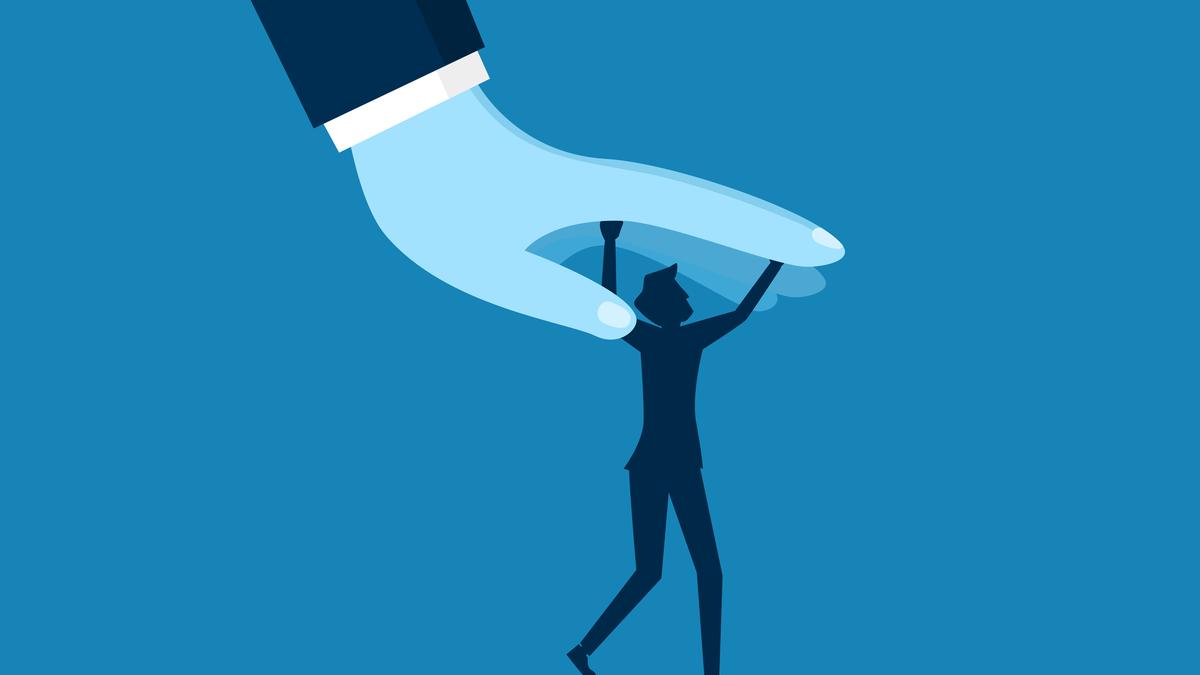When oppression lasts for centuries, it transforms into an invisible force, dictating behaviour without explicit rules.
| Photo Credit: Getty Images
A video recently surfaced showing an IAS officer receiving a petition from a woman. Before accepting it, the officer insisted, “You wear your slippers first, only then I will take it.” Though a small gesture, it carried a powerful message — an attempt to break an invisible but deeply rooted barrier. It made me reflect on another unsettling reality: in many rural areas, individuals from so-called “lower castes” still leave their slippers outside before stepping onto the streets or entering the homes of the so-called “upper castes”. Even when educated individuals urge them to break this practice, they refuse. The question then arises — has discrimination stopped being an external imposition and instead turned into a habit?
Caste-based discrimination in India has a long history, shaping social interactions in ways both explicit and subtle. Legal reforms and social movements have attempted to dismantle these divisions, yet many discriminatory practices persist — not always through force, but through conditioning.
The act of removing slippers before entering an “upper-caste” space is a perfect example. Historically, marginalised communities were forbidden from covering their feet in the presence of dominant castes. Laws changed, but the practice remained — not as an enforced rule, but as an ingrained habit. Many follow it without being told, without questioning. Even when encouraged to defy it, they hesitate. This silent submission, passed down through generations, reveals how oppression, when internalised, no longer needs an enforcer.
So, what does this tell us? That caste discrimination is no longer just a system imposed by others — it has been internalised, it has become a self-perpetuating cycle, turned into a habit so deeply ingrained that people uphold it even when they do not have to. And that is perhaps the most dangerous kind of oppression — the one people do not even realise they are enforcing upon themselves.
Generations of exclusion and subjugation have conditioned people to believe in their “place” in society. When oppression lasts for centuries, it stops needing active enforcement. It transforms into an invisible force, dictating behaviour without explicit rules. Even today, caste discrimination operates in subtler ways — in the hesitation to share meals, in coded questions about surnames, in the discomfort of sitting next to someone perceived as “different”.
If caste discrimination has become an unconscious habit, then unlearning it must be a conscious act. The real challenge is not just dismantling external barriers — it’s rewiring generations of ingrained behaviour, confronting the invisible rules people follow without question. It begins with awareness — recognising how ingrained habits, such as removing slippers, sustain oppression. Small acts of defiance, such as refusing to comply with discriminatory customs, can break this cycle. The narrative must shift: dignity comes from asserting equality, not submission. The privileged must actively dismantle inherited biases, challenging discrimination in their own circles. This fight is psychological as much as social. The so-called privileged sections must stop being passive beneficiaries of systemic oppression and take active responsibility in dismantling it. Instead of silently enjoying the submission of marginalised communities, they must create space, amplify voices, and challenge discriminatory norms within their own circles. True equality is not about offering charity — it’s about redistributing power, questioning inherited privileges, and refusing to perpetuate a system that thrives on silent compliance. The privileged must not just “allow” change but demand it, ensuring that dignity and self-respect replace forced humility. Justice begins when those in power stop merely observing and start actively resisting oppression.
We like to believe we have progressed. But if people still hesitate to walk in their own shoes, on their own streets, then the truth is, we have merely changed the face of oppression, not eradicated it. And until we break free from these self-imposed chains, we cannot claim to be truly ‘free’.
Published – April 27, 2025 03:50 am IST
